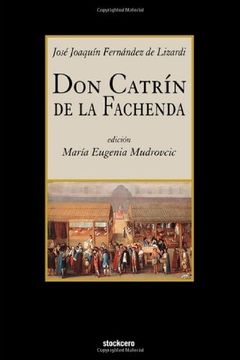Reseña del libro "Don Catrin de la Fachenda"
Completed in 1819 and approved by the censorship in 1820, "Don Catrín de la Fachenda" was the last novel written by José J. Fernández de Lizardi, and the only one that remained unpublished until 1832, five years after the death of its author. At first glance, the novel does not seem -at least morally- to doubt: bad characters die, "catrinismo" is sensationally defeated and the truth left standing is monopolized by the clergy, military, and nobility. Perhaps dazzled by the canonization process that Fernández de Lizardi underwent at the hands of liberal historiography towards the end of the 19th century, critics tend to read "Don Catrín de la Fachenda" as the representative of a colonial order that an emergent Mexican nation must destroy in order to advance, free from those elements that halt progress, toward the promising period of liberal modernization. However, one can also trace in the protagonist the signs of the anxiety Lizardi experienced due to the development of a revolution that sooner rather than later would impose what he perceives as a materialist and bourgeois social code. This is probably why all political expectations in the novel rely on those redeemer-characters that form part of a colonial apparatus that Lizardi seems committed to modernize at all costs: clergymen that quote Rousseau, military officials who declare their loyalty to the king and the law, creole-aristocrats that do not speak of a nobility based on blood but of a nobility of virtues, and lettered men who fervently trust in the power of religion, education and work. Displaying what could be classified as a monarchical-constitutional reformism, Lizardi expects such privileged agents to carry out, without violence, the political and social changes needed in New Spain at the beginning of the 19th Century. Far from being in line with a view of Lizardi as revolutionary and liberal, the results of the clash of discourses that occurs within "Don Catrín de la Fachenda" seems to confirm the author's nostalgia for a colonial order in which eternal truth, honor and authority prevail as bastions of the church, the army and the nobility. In the current edition, María Eugenia Mudrovcic undertakes the analysis of Lizardi's last novel as well as provides notes that facilitate an in depth understanding of a text that though entertaining, is complex and contradictory.

